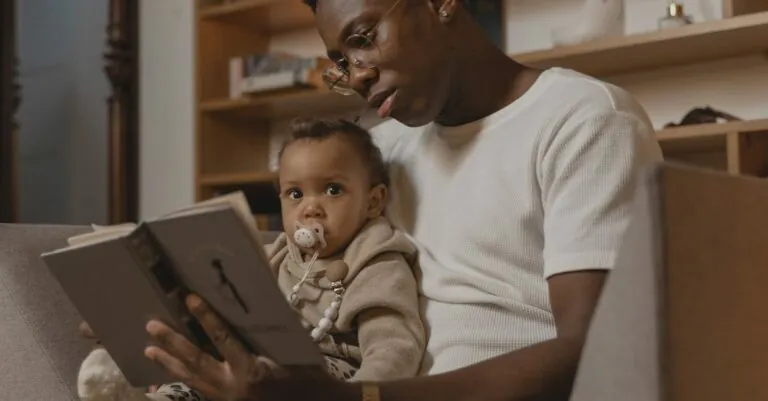Divorce in Florida with kids can feel like trying to navigate a swamp without a map—frustrating and a little messy. With sunny beaches and palm trees surrounding them, parents often find themselves in a stormy emotional landscape when it comes to custody and co-parenting. It’s not just about splitting assets; it’s about ensuring the little ones thrive amidst the chaos.
But don’t worry, navigating this tricky terrain doesn’t have to be all doom and gloom. With the right information and a sprinkle of humor, parents can turn this challenging chapter into a manageable journey. After all, if they can survive family vacations in cramped cars, they can definitely tackle co-parenting in the Sunshine State. Let’s dive into the essentials of making divorce a little less daunting for everyone involved.
Table of Contents
ToggleOverview of Divorce in Florida
Divorce in Florida involves specific legal processes, especially when children are part of the equation. Parents must navigate child custody arrangements, which prioritize the best interests of the child. In Florida, shared parental responsibility is common. Courts often recommend a parenting plan that outlines time-sharing and decision-making responsibilities.
Understanding Florida’s no-fault divorce law remains essential. This law allows one spouse to file for divorce without proving wrongdoing by the other party. The spouse seeking a divorce simply needs to demonstrate that the marriage is irretrievably broken.
Child support plays a significant role in divorce proceedings with kids involved. Courts determine support amounts based on guidelines considering both parents’ incomes and the needs of the child. Florida calculates child support using a formula that factors in monthly income and time-sharing arrangements.
Legal representation can greatly assist parents during this complex process. Attorneys specializing in family law provide valuable guidance on custody agreements and child support calculations. Mediation offers another option, encouraging parents to settle disputes amicably rather than resorting to litigation.
Emotional well-being must not be overlooked during divorce proceedings. Children often experience anxiety and confusion, making it crucial for parents to maintain open lines of communication. Encouraging cooperation can reduce conflicts and foster a healthier co-parenting environment.
Resources and support networks exist to help families during this transition. Various organizations offer counseling services and workshops focusing on co-parenting strategies and emotional support. Utilizing these resources can aid parents in managing the challenges of divorce while ensuring their children’s needs are met.
Legal Process of Divorce in Florida
Navigating the legal process of divorce in Florida involves several clear steps, especially when children are part of the equation. Understanding these steps helps minimize confusion.
Filing for Divorce
Initiating a divorce begins with filing a petition for dissolution of marriage. This document must list both parties and any minor children involved. One spouse typically completes this filing in the appropriate circuit court. Once the petition is filed, the other spouse receives a copy, initiating their response period. Florida allows for no-fault divorces, meaning neither spouse needs to prove wrongdoing to file. If both parties agree on the essential issues, they can opt for simplified procedures, streamlining the process.
Required Documentation
Gathering essential documentation proves critical for a smooth divorce process. Required documents include the financial affidavit, which outlines income, expenses, assets, and liabilities. Each parent must also provide recent tax returns, bank statements, and pay stubs. Documentation related to child-related expenses, such as school costs and healthcare needs, plays a significant role in custody arrangements. Accurate documentation aids in establishing child support obligations and ensures the best interests of the children are prioritized throughout the proceedings.
Custody Arrangements for Kids
Custody arrangements in Florida address children’s needs during and after divorce. Understanding the types of custody and the factors that influence decisions provides clarity for parents navigating this emotional landscape.
Types of Custody in Florida
Florida recognizes two primary types of custody: legal custody and physical custody. Legal custody involves the right to make significant decisions about a child’s upbringing, including education and healthcare. Physical custody refers to where the child lives and the daily care provided. Parents can share custody, resulting in a shared custody arrangement, or one parent may have sole custody. Shared custody allows both parents to be involved in decision-making and day-to-day care. Sole custody grants one parent full responsibility for the child’s welfare, which may occur when it serves the child’s best interests.
Factors Affecting Custody Decisions
Several factors influence custody decisions in Florida, prioritizing the child’s best interests. First, the child’s age and preferences often come into play, as older children may express a desire to live with a particular parent. Second, the parents’ ability to provide a stable environment significantly impacts the decision. Third, the quality of the relationship between each parent and the child carries weight in determining custody outcomes. Additionally, evidence of any history of domestic violence or substance abuse can sway the court’s decision-making process. Courts assess these factors meticulously to ensure that children remain in nurturing and supportive environments.
Child Support Guidelines in Florida
Child support in Florida is governed by specific guidelines that ensure fair financial support for children. These guidelines consider both parents’ incomes and the child’s needs.
Calculation of Child Support
Florida uses a formula to calculate child support. This formula factors in the combined income of both parents. The guidelines provide a worksheet that assists in determining obligations based on the number of children. For example, if one parent earns $4,000 and the other $2,000, the formula will assess how much support is owed. Further, additional costs such as childcare and medical expenses are also included in the calculations. Courts strive to ensure that children’s basic needs are met through these formulas.
Modifications to Child Support
Child support arrangements can be modified under certain circumstances. For instance, significant changes in a parent’s income or job loss can prompt a reevaluation. Parents must file a petition with the court to initiate modifications. Notably, changes in the child’s needs or circumstances that affect their welfare may also warrant adjustments. Courts will review submitted evidence before making a decision. Keeping open communication between parents aids in addressing necessary modifications efficiently.
Co-parenting Strategies
Co-parenting after a Florida divorce requires intentional strategies to foster cooperation and ensure children’s well-being. Implementing effective techniques enhances communication and creates a supportive atmosphere for kids.
Effective Communication Techniques
Active listening stands at the forefront of effective communication. Parents must focus on truly hearing each other’s concerns and feelings. Utilizing a calm tone during discussions prevents misunderstandings. Scheduling regular check-ins to discuss children’s needs can also strengthen the partnership. Expressing appreciation for each other’s efforts fosters positive interactions. Additionally, using clear language when discussing parenting plans reduces confusion. Keeping conversations child-centered ensures decisions focus primarily on their best interests.
Building a Supportive Environment
Establishing a supportive environment benefits children’s emotional stability. Creating consistent routines across both households helps children feel secure. Encouraging open dialogue allows kids to share feelings about transitions without fear. Emphasizing teamwork in parenting promotes unity, which is vital during changes. Involving children in decision-making fosters a sense of control and inclusion. Furthermore, sharing important milestones and achievements between parents builds a united front. Striving for flexibility ultimately allows for modifications that accommodate children’s evolving needs.
Divorce in Florida with children presents unique challenges but navigating this journey is possible with the right approach. Parents can prioritize their children’s well-being by focusing on effective communication and cooperation. Embracing humor and resilience can transform difficult moments into opportunities for growth.
Understanding the legal aspects and being prepared with essential documentation can ease the process. By fostering a supportive co-parenting environment and staying flexible, parents can create a nurturing atmosphere for their children. Utilizing available resources and support networks can further assist families in this transition, ensuring that everyone involved emerges stronger and more united.








